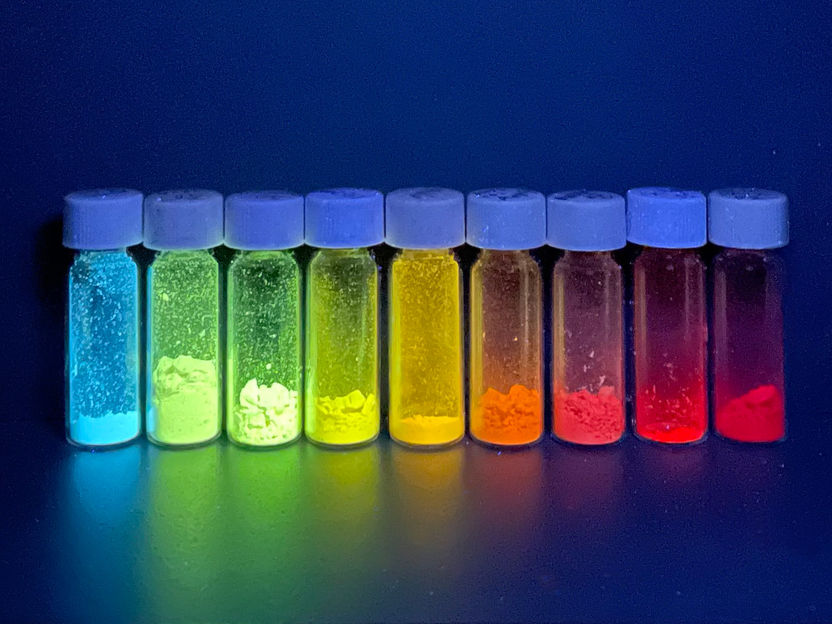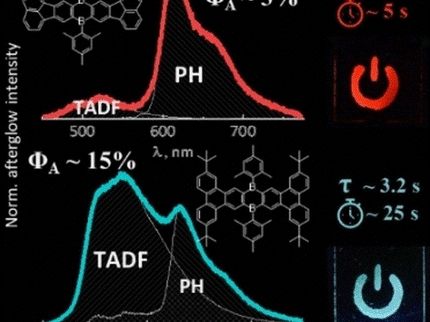Entire colour palette of inexpensive fluorescent dyes
ETH researchers create novel security inks - including red, which was previously difficult to produce
Advertisement
ETH researchers have developed a modular system for the simple and inexpensive production of security inks. It is based on polymers and could also be used in solar power plants and screens in the future.

Polymer fluorescent inks can now also be produced in red.
ETH Zürich
Novel fluorescent dyes developed by ETH researchers are relatively simple and inexpensive to produce. The dyes are polymers with a modular structure. They consist of a different number of subunits depending on their colour. The subunits used are chemically simple molecules that are either commercially available or can be produced by chemists in one reaction step.
Now, scientists led by Yinyin Bao have succeeded in using the new approach to produce a wide range of colours, including red, which was previously difficult to produce. Bao is a senior scientist in the groups of ETH professors Jean-Christophe Leroux and Chih-Jen Shih. Together with scientists from RMIT University in Melbourne, the team developed artificial intelligence algorithms that help decide which molecule subunits are needed in what numbers for a particular colour.
Potential applications for the fluorescent inks include UV-activated security inks for banknotes, certificates, passports or for encrypting information. The method can also be used to produce inks that change colour after prolonged UV illumination. In their new work, which the scientists published in the scientific journal Chem, they demonstrated this using the example of two initially red fluorescent inks, one of which turns blue after several minutes of UV illumination, while the other remains red. This property can also be used for security features.
Other applications for the new fluorescent molecules are in solar power plants, or they could one day be combined with semiconducting molecules to produce low-cost organic light-emitting diodes (OLEDs) for displays.




























































